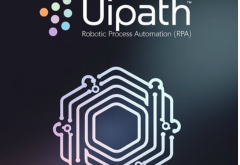Almost 82 percent of Indian organizations have reported two-times surge in security incidents, according to Fortinet’s Asia-Pacific SASE survey, conducted by IDC. The survey reveals that 94% of Indian respondents have a hybrid or fully remote working model. With a surge of over 100% in managed devices connecting to enterprise networks expected in the next two years, the need for robust cybersecurity measures is emphasized. The survey also highlights the rising number of unmanaged devices and the increasing risk of security breaches. To address these challenges, organizations are turning to Single-Vendor SASE solutions for improved security posture and a streamlined user experience.
Key findings from the survey include:
The Rise of the ‘Branch-Office-of-One’: In India, 94% of respondents have a hybrid or fully remote working model, with over 74% having at least 50% of their employees working in a hybrid mode. This shift to remote work has turned employees into “branch offices of one,” working from their homes or other locations outside the traditional office. As a result, 72% of respondents in India expect managed devices connecting to enterprise networks to increase by more than 100% in the next two years, with some expecting growth of 400%. Additionally, 46% in India anticipate a growth of over 50% in unmanaged devices, increasing the complexity and risk of security breaches.
Unmanaged Devices Pose a Risk: With the prevalence of cloud computing and remote work, an increasing number of users, devices, and data are located outside enterprise networks. Currently, 28% of devices connecting to networks in India are unmanaged, significantly raising the possibility of security breaches. Respondents in India predict a 50% increase in unmanaged devices by 2025.
The Need to Secure the Cloud: As hybrid work increases, employees require multiple connections to external systems and cloud applications to remain productive. Survey respondents in India indicate that their employees need to make over 40 connections to third-party cloud applications, which increases the risk of security breaches. Over the next two years, 100% of respondents in India expect this number to double, and over 68% believe it will triple, exacerbating the risk. Maintaining network security while ensuring employee connectivity to third-party and cloud-based services presents a significant challenge as traditional security measures prove inadequate.
Increased Security Incidents: The shift to hybrid work and the rise in managed and unmanaged connections have resulted in a significant increase in security incidents. According to the survey, 82% of respondents in India have experienced at least a twofold increase in security incidents, with 72% reporting more than triple the number of breaches. The top security incidents include phishing, denial of service, data/identity theft, ransomware, and data loss. However, only 49% of organizations across Asia have dedicated security personnel, leaving them more vulnerable to security incidents and breaches.
SASE: A Game-Changer for Hybrid Work: To address the challenges of hybrid work, many organizations in India plan to invest in a Single-Vendor Secure Access Service Edge (SASE) solution. This approach aims to improve security posture and provide consistency in the user experience for remote employees. The need for a comprehensive solution that offers a consistent security posture for users on and off the network, simplifies security policy management, and enhances the user experience is driving organizations to explore SASE.
The Preference for a Single Vendor: As organizations adopt SASE to manage networking and security services, they are seeking a converged platform to streamline operations. The survey reveals that 80% of respondents in India prefer a single vendor for networking and security capabilities and are consolidating their IT security vendors. More than half (56%) of respondents prefer a single vendor for cloud-delivered security services and SD-WAN, citing benefits such as reduced security gaps, improved network performance, ease of deployment, and addressing integration and scalability challenges.
The survey findings highlight the importance of prioritizing security posture and investing in cloud-delivered solutions that seamlessly integrate with on-premises solutions to manage hybrid work environments and mitigate risks. The preference for a single vendor and infrastructure convergence demonstrates the need for efficient management, and a zero-trust architecture can enhance security and usability. Organizations must address these challenges and invest in security solutions to support their hybrid workforce and reduce security threats.
Vishak Raman, Vice President of Sales at Fortinet India, emphasized the company’s commitment to bridging the skills gap and providing necessary cybersecurity knowledge and awareness to all employees. He also highlighted how Fortinet’s Single-Vendor SASE solution aims to simplify security policy management and enhance the user experience for remote employees, helping Indian businesses tackle the security challenges associated with the changing workforce.
 Latest Technology News Today – Get Latest Information Technology Updates and Services Latest Technology News Today – Get Latest Information Technology Updates and Services
Latest Technology News Today – Get Latest Information Technology Updates and Services Latest Technology News Today – Get Latest Information Technology Updates and Services 









